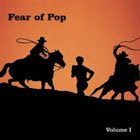 |
vs. |  |
vs. |  |
| "The City" by The Dismemberment Plan from Emergency & I | "Wake Up" by Rage Against the Machine from Rage Against the Machine | "Fire Escape" by Fastball from All the Pain Money Can Buy |
"The City" (8 plays at Last.fm, tied for #395): It's hard to overstate the tragedy of the Dismemberment Plan over the past decade. Since making one of the best indie rock records ever -- this tremendous song is one of four in the tournament, out of just 12 on the album -- they produced a middling follow-up, a forgettable remix album, broke up and gave birth to Travis Morrison's embarrassing solo career. This tune is maybe the most disappointing of it all, though, in that it should have been a radio smash. I suppose 1999 was not the right time for it, but the guitar chime opening just begs to heard with "This is the Dismemberment Plan on Z104" over it. The rest of the song is structured impeccably, with verses flowing smoothly into a little chorus descent, and matching the tone of the lyrics -- despair, loss and understanding -- exactly. The one and only time I got to see them live, on their farewell tour, that last line, "All... I... ever... say... now... is... good... bye!" was a tough one.
"Wake Up" (2 plays, unranked): There are a handful of songs in this tournament almost entirely because of their use in film, and this is one of them. For a lot of reasons, this was the perfect track for the coda and credits of The Matrix. That said, it's also by far the best encapsulation of the Rage sound -- I think it says something for it that I originally assumed it was new when I first heard it, rather than seven years old at the time. You've got explicit politics, historical metaphor, calls to action, solid rapping, Tom Morello's wakka-wakka funk, some excellent youthful screaming from Zach de la Rocha. Even the six-minute length works well -- the bridge allows for some nice metal moves to be thrown into the mix and connects and makes the whole song really feel epic. The second half does a lot of things you don't often get from Rage, and certainly not from the later, more singles-oriented work.
"Fire Escape" (3 plays, unranked): 1998 brought an odd flood of power-pop hits that I liked but whose follow-ups I loved, and no one else did. This is one (Barenaked Ladies and Semisonic had the others). I've always thought this song was much better than "The Way," which always seemed a little gimmicky to me for some reason. This tune told me there was really something there with this band, and the record wound up becoming one of my favorites of the late 90s. It's still quite good, but it hasn't aged as well as it could've. While the genre as a whole has taken a commercial nosedive in the U.S., this decade has brought about a lot of great power-pop records from the likes of Starling, the Long Winters, Fountains of Wayne, the New Pornographers, etc. I'm still able to appreciate the well-founded melody here, the harmony and jangle, but it doesn't have the same kick it used to.
VERDICT: Later rounds of this tournament may be dominated by the Dismemberment Plan, quite frankly. "The City" barely has to nod in the direction of the other songs to advance, and it's going to be tough to beat until it's up against another one from Emergency & I.
























